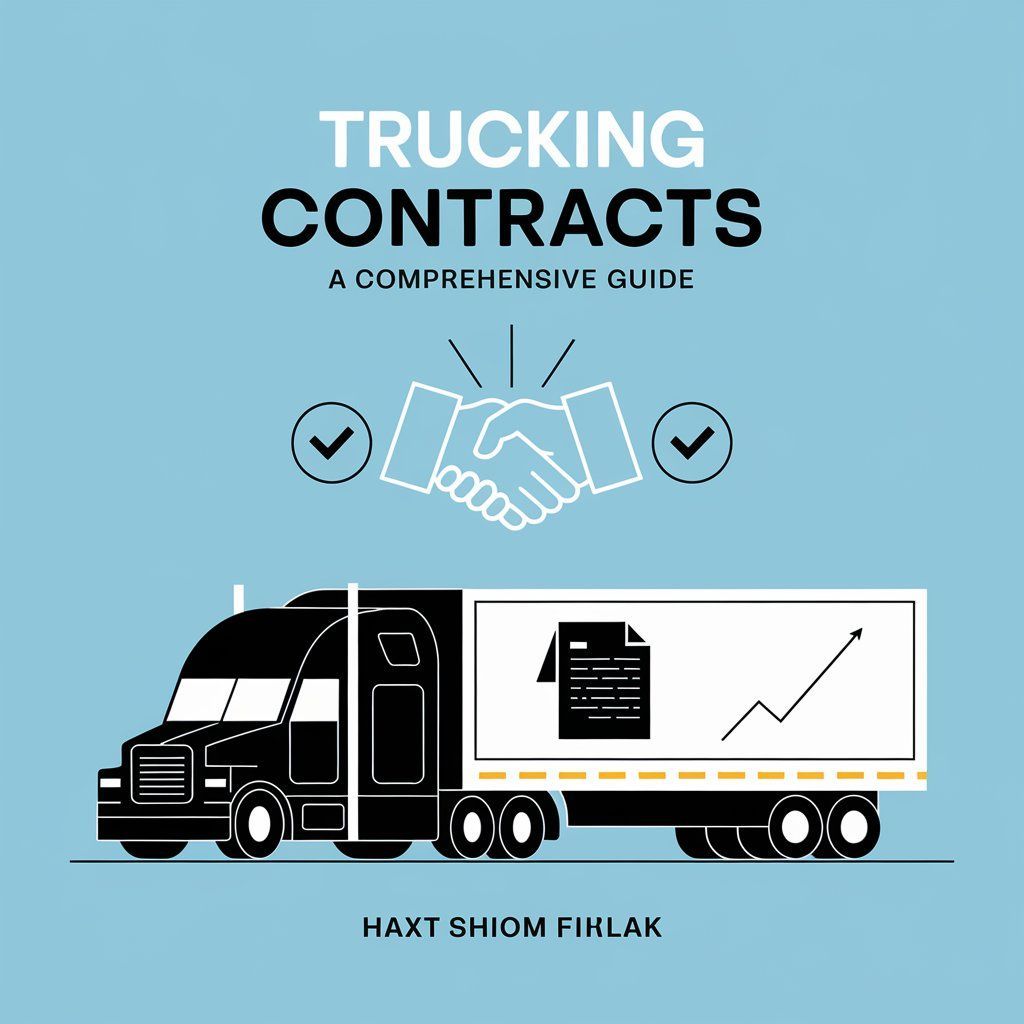Navigating Recessions
A Comprehensive Guide to Financial Assistance Programs for Transportation Companies during an Economic Downturn
During periods of economic downturn, transportation companies often face significant challenges. The impact of a recession can lead to decreased demand, rising costs, and financial strain. However, there are various financial assistance programs available to help these companies weather the storm. In this comprehensive guide, we will explore five key financial assistance options for transportation companies, including government programs and private initiatives. By leveraging these resources, companies can improve their financial stability and resilience in the face of a recession.
Small Business Administration (SBA) Loans:
The Small Business Administration (SBA) plays a crucial role in providing financial support to transportation companies during times of economic hardship. SBA loans offer a lifeline for trucking businesses, providing them with access to low-interest financing options that can help them navigate through a recession.
One notable program is the SBA 7(a) Loan Program, which offers small businesses, including transportation companies, the opportunity to secure funding for various purposes. Trucking companies can utilize these loans to cover working capital needs, invest in equipment purchases, expand their fleets, or even finance business growth strategies. The program offers longer repayment terms and competitive interest rates, making it an attractive option for companies seeking financial assistance.
To apply for an SBA loan, trucking companies can visit the SBA's official website (www.sba.gov) and navigate to their loan application portal. Alternatively, they can reach out to local SBA district offices or consult with SBA-approved lenders, such as banks and credit unions, that participate in the loan program. These lenders can guide companies through the application process, ensuring that all necessary documents and information are submitted correctly.
Economic Injury Disaster Loans (EIDL):
The Economic Injury Disaster Loan (EIDL) program, administered by the SBA, is specifically designed to provide relief to businesses impacted by economic downturns, such as transportation companies during a recession. EIDLs offer working capital to cover operating expenses and bridge the gap during financially challenging times.
Trucking companies can use EIDL funds to meet various financial needs, including payroll, rent, utilities, and other essential expenses. The loans come with favorable terms, including low-interest rates and extended repayment periods, allowing companies to manage their cash flow effectively and regain stability.
To apply for an EIDL, trucking companies can visit the SBA's official website or directly access the SBA's Disaster Loan Assistance portal. The application process typically requires detailed financial information, including tax returns, profit and loss statements, and a comprehensive understanding of the company's financial situation. It's important for trucking companies to prepare and submit accurate and complete documentation to increase their chances of securing an EIDL.
Federal Grants for Transportation Infrastructure:
The U.S. government recognizes the importance of a robust transportation infrastructure system and provides grants to support its development. These grants, available through agencies such as the Department of Transportation (DOT), offer financial assistance specifically aimed at enhancing transportation systems, ensuring safety, and stimulating economic growth.
Transportation companies, including trucking businesses, can explore grant programs like the Infrastructure for Rebuilding America (INFRA) program and the Better Utilizing Investments to Leverage Development (BUILD) program. These grants provide opportunities for trucking companies to improve their infrastructure, invest in road and bridge construction, upgrade port facilities, and enhance transit systems.
To apply for federal grants for transportation infrastructure, trucking companies should monitor grant opportunities published on the official websites of relevant government agencies like the DOT. Detailed eligibility criteria, application instructions, and deadlines will be outlined in the grant announcements. It's important for trucking companies to carefully review the requirements and prepare a comprehensive application that highlights their specific infrastructure improvement plans and the anticipated benefits to the transportation industry and the broader economy.
State-Specific Assistance Programs:
Many states across the United States offer targeted financial assistance programs for transportation companies, recognizing the industry's importance in supporting local economies and job growth. These state-specific programs aim to provide support, stimulate economic development, and preserve jobs within the transportation sector. Let's explore a few examples of state-specific assistance programs in California, Texas, and New Mexico.
Texas:
Texas offers various state-specific assistance programs designed to support transportation businesses. The Texas Capital Access Fund (TCAF) is one such program that provides financial assistance to small businesses, including transportation companies, by facilitating access to capital through loans and loan guarantees. TCAF aims to help businesses overcome barriers to accessing traditional financing and supports their growth and expansion efforts. By availing themselves of the TCAF program, transportation companies in Texas can enhance their financial stability and seize opportunities for development.
California:
In California, transportation companies can benefit from programs like the California Clean Truck, Bus, and Off-Road Vehicle Voucher Incentive Project (HVIP). This program provides financial incentives to encourage the adoption of clean and low-emission vehicles in the transportation industry. Trucking companies can receive vouchers that offset the cost of purchasing or leasing eligible advanced technology vehicles, such as zero-emission trucks or buses. By participating in HVIP, transportation companies in California can not only reduce their carbon footprint but also enjoy financial assistance to upgrade their fleets.
New Mexico:
In New Mexico, transportation companies can take advantage of programs like the Job Training Incentive Program (JTIP). This initiative offers financial incentives to businesses, including those in the transportation industry, for the training and skill development of new or existing employees. JTIP provides partial wage reimbursement to eligible businesses, helping them offset the costs associated with training programs. By participating in JTIP, transportation companies in New Mexico can enhance the skills of their workforce, improve operational efficiency, and increase their competitiveness during a recession.
Private Factoring Services:
Factoring is a financial assistance option that can provide immediate cash flow relief for struggling trucking companies. Factoring companies purchase accounts receivable from transportation companies at a discounted rate, providing an upfront payment for outstanding invoices. This enables companies to access funds quickly, rather than waiting for customers to pay their invoices. Factoring services can help transportation companies cover operational costs, fuel expenses, and driver wages during a recession. It offers a flexible and reliable solution to manage cash flow challenges and maintain business continuity.
Key Takeaways:
- SBA loans, such as the 7(a) Loan Program and Express Bridge Loan Program, offer low-interest financing options for transportation companies during a recession.
- EIDLs provide working capital to cover operating expenses and help transportation companies maintain stability during financial distress.
- Federal grants for transportation infrastructure development, like the INFRA and BUILD programs, offer financial support for projects that enhance transportation systems and stimulate economic growth.
- State-specific assistance programs offer targeted financial support, tax incentives, and training initiatives for transportation companies, promoting local economic growth and competitiveness.
- Factoring services provide immediate cash flow relief by purchasing accounts receivable at a discounted rate, enabling struggling trucking companies to cover operational costs.
Navigating a recession can be challenging for transportation companies, but various financial assistance programs exist to provide support. Atlas Factoring is committed to helping the transportation industry with their factoring services. We understand the unique financial needs of trucking companies during tough times and offer flexible and reliable factoring solutions to manage cash flow challenges. To learn more about how Atlas Factoring can assist your transportation company, visit our website at www.atlasfactoring.com. Take the first step towards securing your financial stability today. Call us at (866) 221-8690 to discuss your factoring needs and explore how we can support you through a recession and beyond.











Share On: